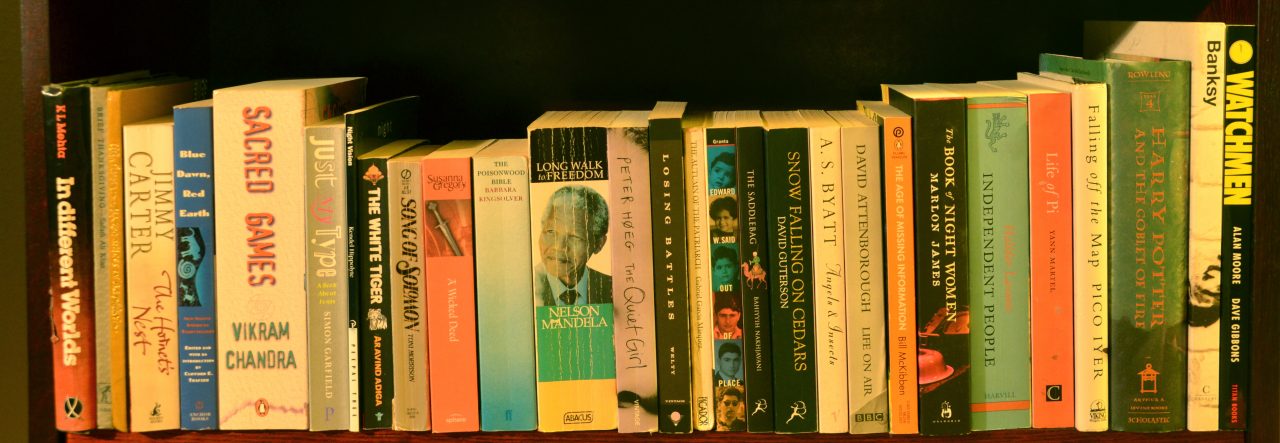Review by Usha Raman
Publishing details: The Handmaid’s Tale, published by Everyman / Virago, 1985, 392 pages. The Robber Bride, published by DoubleDay / Virago, 1993, 576 pages. Wilderness Tips, published by Nan A. Talese / Virago, 288 pages. Moral Disorder, published by Bloomsbury Publishing / Virago, 2006, 272 pages.
I encountered Margaret Atwood first in a dusty, old edition of The Handmaid’s Tale, a dark and disturbing view of a dystopic future in which reproductive rights and rights of association are nonexistent. I moved on to The Robber Bride, also somewhat dark but not without touches of humour. There are many other titles sitting on my shelves waiting to be read, but for now let me talk about the two that have been recently consumed. These are two volumes of short stories: Wilderness Tips and Moral Disorder. I finished the first a while ago, and am about half way through the second. But it’s the sort of book where I have to stop now and then in sheer amazement at her felicity of expression and the way in which she is able to capture a moment, look deeply into it, and emerge with sharp insights into human nature. In doing so she presents us with aspects of her characters and their lives that bear so much resemblance to our own meanderings through life, in a way that we are moved to both laugh and cry over them.
Wilderness Tips is a collection of stories with a shared theme—everyday decisions, everyday events that forever change us or define who we become. So there is Lois (Death by Landscape) who wanders into the woods out of camp, with a friend, and returns alone, her companion having gone into the trees and disappeared. And Susanna, who danced on a soapbox to win the smiles and approval of her uncles, and grew up to forever seek the same approval from other avuncular figures in her personal and professional life. The book is about the “single instance that shapes a whole life”, as the book jacket says. Moral Disorder is different; it follows the confusions of a single character from adolescence through womanhood, stopping along the way to peer into instances that make her life. As a teenager poring over Browning’s “The Last Duchess” (a poem many of us may have encountered in English literature classes), she comes to realise that every door one walks through is a pathway to the afterlife. And as an older woman driving to see her mother, she discovers a new kinship with a kid sister who tormented her as a child. It’s funny, sad, and above all, insightful.
Atwood’s prose is simple and no-nonsense, the simplicity of her writing makes the truths she presents that much more forceful.
I suppose that is what a gifted writer is able to do. Make us stop and look at ourselves in the pages of a book, and find answers to the small and large questions we have in life through the stories they tell. Whether it is on an adventure or in meditation, through the pages of a novel or in the frame of a painting, what we are looking for is a glimmer of the self.

The only one of hers I’ve read is The Blind Assassin, which I enjoyed. A friend has lent me The Handmaiden’s Tale, but I haven’t read it yet. Sounds intriguing.
Oh my, when I discovered Margaret Atwood (years ago) I didn’t read anything else for months! The Handmaiden’s Tale still haunts me today, and I re-read The Edible Woman till I got it, really got it.
The Robber Bride I have to admit mystified me though – and then I hit Possession by AS Byatt, and couldn’t think of anything else for ages!
It strikes me how our journeys through literature take on their own shape – couldn’t tell you where I was when I read these books, but I know in my world they belong together.
Interesting interview with Atwood here: http://www.theguardian.com/books/2013/aug/24/margaret-atwood-interview